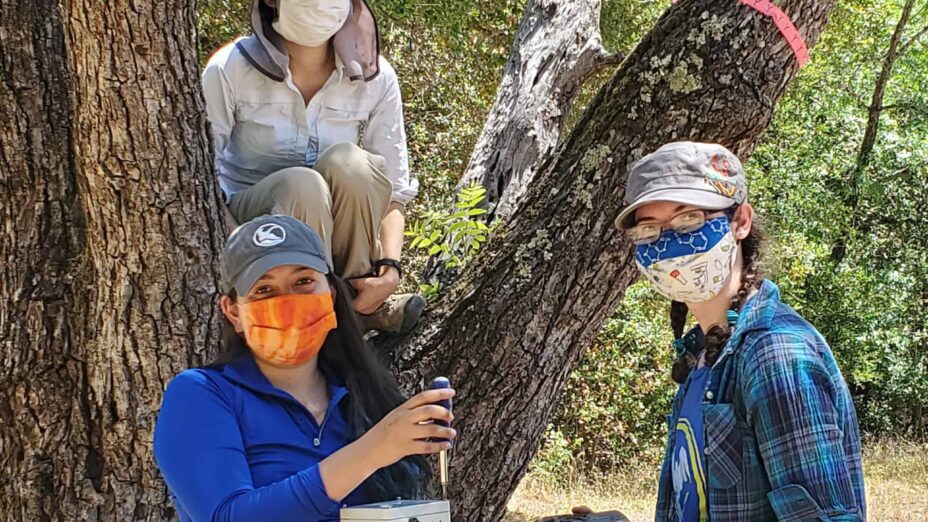
At Save Mount Diablo’s Dr. Mary Bowerman Science and Research Colloquium, held online in early December, UC Berkeley PhD student Erin Person presented the results of her study of California ground squirrels in Briones Regional Park. She analyzed microbial DNA in fecal samples to identify the squirrels’ gut microbiome (the community of microbes that live in each animal’s digestive tract). She also recorded social behaviors for individual squirrels.
California ground squirrels eat a seed-based diet, mostly from grasses and oaks. While much of their initial gut microbiome is passed from their mother, social interactions with other local ground squirrels cause this microbiome to change with time. Person’s initial findings suggest that ground squirrels in a community do exchange microbes through social interaction, and that more social squirrels have more diverse gut microbiomes.
Because gut microbiomes are poorly understood in wild animals, this research helps scientists begin to understand the importance of the gut microbiome, which could potentially affect squirrel health and survival; what role social interaction plays; and how shrinking habitats might affect social behavior and, therefore, microbiome diversity.
Person’s study is part of a broader evolutionary ecology research effort at Mills College.
Learn more about our Mary Bowerman Science and Research Program.
Watch Erin Person’s Presentation on Gut Microbial Diversity
The gut microbial diversity presentation starts at 43:00 and ends at 58:00.
Susan Ingersoll contributed to this blog post.

